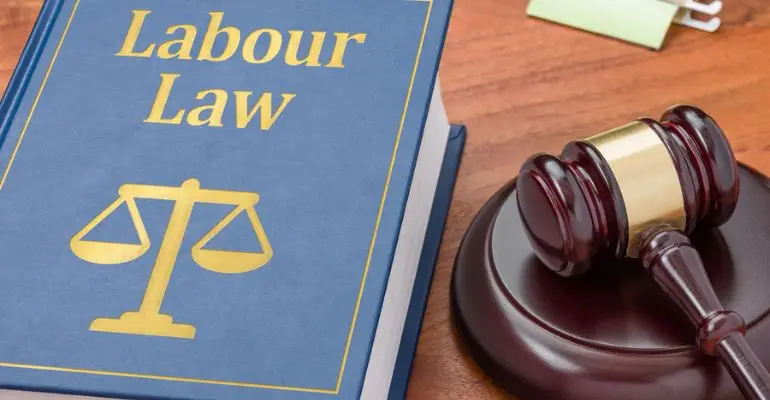How to Become a Whistleblower

The adage, “See something, say something,” is incredibly relevant when it comes to holding employers and other workers accountable for their behavior. If you discover that the company you work for or some of your fellow team members are conducting unethical or illegal deeds, you may feel compelled to take action.
Reporting the behavior will make you a whistleblower (or “whistle-blower”), but what is whistleblowing, exactly? Below, you will learn how to become a whistleblower, what that title entails, and what protections you have as a whistleblower under state and Federal law.
What Is a Whistleblower?
A whistleblower is a person who reports misconduct, illegal activities, or unethical practices within an organization. They usually work for the entity they are reporting, though they may be contractors or even external parties with access to information regarding the wrongdoing.
In any case, a whistleblower’s actions are crucial in uncovering issues that may otherwise remain hidden, consequently holding businesses and their employees accountable for unlawful conduct.
As a whistleblower, you can report a variety of activities, including but not limited to the following:
- Financial fraud
- Safety violations
- Environmental hazards
- Discrimination and harassment
- Corruption and bribery
- Misuse of funds
For example, suppose you discover your employer is embezzling 401(k) money that should go to each employee’s tax-deferred account. These actions are illegal and could leave you and your coworkers without adequate funds to retire, ultimately impacting thousands of people in the process.
Fraud and fund misuse are precisely the kinds of unethical behavior you can report. By doing so, you will help foster a culture of accountability and integrity within these organizations, subsequently protecting yourself, your coworkers, and the community at large from the repercussions of unethical corporate behavior.
Understanding Whistleblower Protections
Blowing the whistle can be a daunting and stressful moment. After all, you do not want to alienate yourself from your team members, nor do you want to put your career at risk of retaliation.
Retaliation occurs when your employer penalizes you for engaging in legally protected whistleblowing activities, such as reporting unethical or illegal acts. There are several types of retaliation, including harassment, termination, demotion, and pay cuts.
The good news is that there are legal protections in place to safeguard whistleblowers from retaliation. For instance, the Whistleblower Protection Act (WPA) protects federal employees who disclose evidence of illegal or improper governmental activities by prohibiting retaliation against employees who report such misconduct.
The Dodd-Frank Wall Street Reform and Consumer Protection Act also offers additional financial incentives for individuals who report securities breaches to the Securities and Exchange Commission (SEC).
Alongside these is the Sarbanes-Oxley Act (SOX), which protects workers of publicly traded companies who report financial fraud. It includes provisions for back pay, reinstatement, and special damages.
There are also state-level protections to consider. For example, the Florida Whistleblower Act protects public and private sector employees against retaliation and termination for reporting unethical or illegal acts that their employers commit.
If you take action against your employer and face any form of retaliation, these laws may entitle you to compensation for lost wages and potential job reinstatement. It is vital that you seek legal representation right away. A skilled attorney can help you take appropriate legal action against the company you work for and determine whether you are eligible for compensation, such as back pay.
Can a Whistleblower Be Anonymous?
One key concern for potential whistleblowers is anonymity. Under the WPA and other relevant statutes, certain provisions allow you to report concerns anonymously. By keeping your identity a secret, you can reduce the risk of retaliation or negative consequences, especially if you intend to stay with the company you are filing a complaint against.
Some organizations have internal hotlines or anonymous reporting systems that allow employees to report misconduct without revealing their identity. Find out whether your human resources department offers such an option and use it to insulate yourself if you need to file a complaint. Outside of your business, certain agencies, such as the SEC, provide options for anonymous whistleblower submissions.
Remember that you may eventually have to submit to a deposition or testify in court, depending on the nature of the violation. As such, it is crucial that you seek legal representation anytime you are acting as a whistleblower. An experienced employer relations attorney can help you understand your rights and any potential risks you’ll incur as a whistleblower.
Steps to Becoming a Whistleblower
Below are the steps you will need to take before blowing the whistle on your employer:
Keep to Yourself and Gather Evidence
Detailed records will strengthen your case, so make sure you collect all relevant documentation to support your claims. Examples include emails, memos, reports, and photographs.
As you do so, however, you must not reveal your intentions to anyone you work with. You do not want word to get back to your boss that you are going to file a complaint. That is especially important to keep in mind if you are reporting criminal activity, as you might not know who is involved or who to trust.
Understand the Wrongdoing
Clearly identify the nature of the misconduct. Perhaps it is a matter of financial fraud, or maybe you have spotted several ongoing safety violations. Additionally, determine whether the activity impacts a few employees or the community. Understanding the specifics will help you report accurately.
You should also specify just how urgent the matter is. For example, suppose the company you work for has been dumping toxic waste into a nearby river. In that case, you must report the matter quickly to protect the general population.
Identify the Appropriate Agency
Identify the right agency to report to based on the type of wrongdoing at hand. For instance, you might report financial fraud to the SEC, while workplace safety violations could go to the Occupational Safety and Health Administration (OSHA).
Document Everything
Keep explicit records of all communications and actions you take, including dates, times, and the names of individuals involved. Even if you think a detail does not matter in the grand scheme of things, note it anyway. You never know what facts will be pertinent during a whistleblower case.
Seek Legal Advice
Finally, before taking any formal steps, consult with an attorney with clear experience in whistleblower cases. They can guide you through the entire legal process.
Potential Consequences and Rewards
Blowing the whistle on your employer is an honorable but understandably difficult decision. Understanding the rewards and potential consequences of filing a formal grievance against your company for unethical or illegal behavior is important.
Potential Consequences
Despite the staunch legal protections in place, you may still face retaliation. Some forms of retaliation can be incredibly subtle, as unscrupulous employers might put you in no-win situations at work to justify firing or demoting you. Even if you do not face blatant retaliation, you may become alienated from your coworkers and supervisors.
As a whistleblower, you might face challenges in your professional life, including difficulties in finding new employment. High-profile cases can be particularly damaging to your professional standing, which is a big reason why many whistleblowers prefer to stay anonymous.
The stress and emotional toll of whistleblowing can also be significant, so it is essential that you prepare yourself for potential challenges regarding your well-being.
Potential Rewards
There are some monetary and moral rewards associated with whistleblowing. Some laws, such as the Dodd-Frank Act, offer financial compensation for whistleblowers who provide information that leads to successful enforcement actions.
Many whistleblowers also find personal satisfaction in knowing they did the right thing, even if it was not easy. You may find the intrinsic motivation of reporting wrongdoing to be worth the challenges associated with whistleblowing.
Reporting Misconduct
If you decide to proceed forward, you will need to file a formal whistleblower complaint. Prepare your report and include all relevant details, such as the nature of the misconduct and specifics regarding dates and times, then decide whether to report the incident internally or to an outside regulatory agency. Each agency has specific guidelines for submitting a complaint. Ensure you follow these guidelines to avoid delays or issues, and always keep a copy of your report and any related documentation for your records.
Do I Need a Lawyer to File a Complaint?
Though you do not necessarily need a lawyer when filing a whistleblower complaint, retaining experienced legal representation can be highly beneficial. A qualified attorney can help you understand the risks, rewards, and legal protections in place so you can decide the best course of action. They will also protect your rights throughout the entire process.
Seeking Legal Counsel
If you decide to become a whistleblower, do not attempt to walk that road alone. Consult with a qualified attorney to ensure you understand your rights and the protections available.
Wenzel Fenton Cabassa, P.A. is here to help if you need to report unethical or illegal employer contact. We will guide you through the process and protect your rights as a Florida whistleblower. Contact our team today for a free a case evaluation.
Please Note: At the time this article was written, the information contained within it was current based on the prevailing law at the time. Laws and precedents are subject to change, so this information may not be up to date. Always speak with a law firm regarding any legal situation to get the most current information available.
Related Posts
Recent Posts
- False Claims Act Retaliation & Your Rights
- Fired for Being Pregnant? 5 Situations When You Should Call an Employment Lawyer
- Can My Boss Take My Tips? The Laws of Tip Ownership
- What Does “Meets FCRA Requirements” Mean?
- Can Your Employer Contact You While on Medical Leave? Know Your FMLA Rights in Florida
Contact Us

FREE HELP GUIDES
Dealing with unpaid wages, discrimination or wrongful termination? Get the information you need to protect your workplace rights. We offer employment law resources to help you fight for workplace justice.




